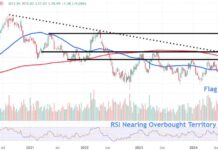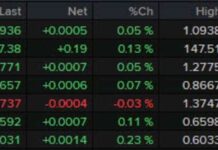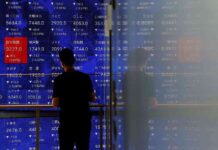China’s Stock Market Manipulation: A Distortion of Reality
China’s stock market has been a rollercoaster for investors, with recent fluctuations causing uncertainty and concern. Despite a 12% increase in the Shanghai composite index since February, there are underlying issues that paint a more ominous picture. While state media and equity analysts may be celebrating the recent rally, the reality is far more complex.
One of the key factors contributing to the distortion in China’s stock market is the government’s intervention through state purchases of shares. While this may seem like a positive move in the short term, it can have long-lasting negative effects on the market. By propping up stock prices artificially, the government is creating a false sense of security that could ultimately lead to a market crash when the support is removed.
The Destructive Impact of State Intervention
State intervention in the stock market is not a new phenomenon in China. However, the extent to which the government is willing to go to manipulate stock prices is alarming. By artificially inflating stock values, the government is distorting the true market dynamics and creating a false sense of stability. This can lead to misallocation of resources and a lack of transparency in the market, ultimately harming investors and the economy as a whole.
Moreover, the reliance on state intervention to prop up the stock market undermines the natural forces of supply and demand that should dictate market movements. This interference can create a disconnect between market performance and economic fundamentals, leading to a bubble that is bound to burst at some point.
The Uncertainty of China’s Stock Market
The recent rally in China’s stock market may have provided a temporary boost to investors, but the underlying uncertainty remains. The heavy reliance on state intervention to drive market performance is a cause for concern, as it indicates a lack of confidence in the market’s ability to function independently.
Furthermore, the lack of transparency in China’s stock market adds to the uncertainty surrounding its future. Without clear regulations and oversight, investors are left in the dark about the true state of the market and the risks involved in investing. This opacity can lead to market manipulation and insider trading, further eroding trust in the market.
In conclusion, China’s manipulation of its stock market may provide short-term gains, but it comes at a cost. The distortion and uncertainty created by state intervention can have far-reaching consequences for investors and the economy as a whole. It is essential for China to address these issues and work towards building a more transparent and stable market for all stakeholders.

















